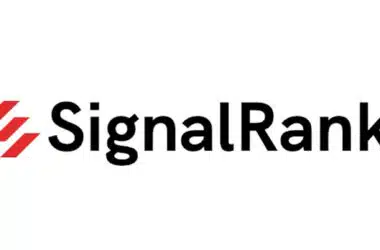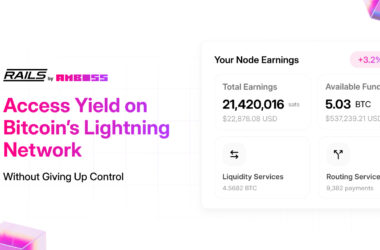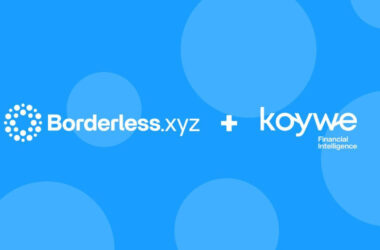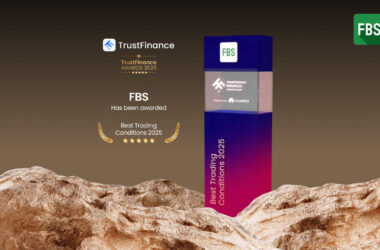Taking on a career in FinTech not only promises a fulfilling and prosperous journey but also offers numerous opportunities for personal and professional growth. As a thriving industry, FinTech embraces innovative ideas and values diverse perspectives, even from those who are just starting their careers.
Which is why in this article, we will walk you through the essential steps to help you build your career in FinTech and if you already have a career then we have got some tips to help you leverage it to get into FinTech.
So let`s get started
Table of Contents
Choosing the Right Major for a Career in FinTech after High School
If you’ve recently graduated from high school and are considering a career in the rapidly growing field of FinTech, it’s crucial to select a major that will equip you with the necessary skills and knowledge. Whether you decide to pursue a traditional four-year Bachelor’s degree or a two-year Associate’s degree, there are several majors that can set you on the right path toward a successful career in FinTech. Here are the top 5 majors to consider:
Information Technology (IT)
An IT program is an excellent choice for aspiring FinTech professionals, as it combines elements of computer science, communications, and business administration. This interdisciplinary approach provides a strong foundation in technology and its applications within the financial sector, making it one of the best options for those looking to work in FinTech.
Finance and Economics
For those more interested in the financial aspects of FinTech, a degree in finance or economics may be the ideal choice. These programs will help you gain a deep understanding of the legal, technical, and regulatory complexities involved in the financial industry. Moreover, a solid background in finance or economics can reduce the amount of on-the-job financial training required once you enter the FinTech workforce.
Business Analytics
FinTech companies often provide consultation services and require experts in business analysis and administration. If the management side of FinTech appeals to you, consider pursuing a degree in business analytics. This major will help you develop the critical thinking and problem-solving skills needed to analyze and optimize business processes in the FinTech landscape.
Mathematics
If you’re unsure about which specific area of FinTech you’d like to focus on but have a strong interest in the field, a mathematics degree may be a suitable option. Studying mathematics will allow you to develop a deep understanding of numerical relationships and pattern recognition. These skills are highly transferable and valuable across various FinTech roles, from data analysis to risk management.
Digital Marketing
FinTech companies also need digital marketing experts who can effectively reach their target audiences and build a loyal clientele. A degree in digital marketing will teach you how to create and execute online marketing strategies, leverage social media platforms, and analyze web traffic data. This expertise is essential for promoting FinTech products and services in today’s digitally-driven world.
What to Do After Earning Your Degree
Once you have graduated with your degree, you`ll need to get started with the next phase of your career. Here are some essential steps to take as you transition from college to a fulfilling career:
Create a compelling resume and portfolio
Compile all your relevant experience into a well-organized resume and portfolio, showcasing your coursework, internships, volunteer work, and projects. This will serve as your professional calling card when applying for jobs or networking with potential employers.
Research potential employers and specializations
Before submitting your resume to every open position you come across, take the time to research the companies and specialized fields within your industry. Identify organizations that align with your values, interests, and long-term goals.
This approach will demonstrate to employers that you are genuinely passionate about working in your chosen field.
Define your professional objectives
Reflect on your aspirations and preferences by asking yourself questions like:
- What job role am I most passionate about?
- What projects do I want to contribute to?
- In what work environment would I grow the most?
Your answers will help you make informed decisions about the career path that best suits your personality and ambitions.
Consider an internship or entry-level position
If you’re unsure about your next steps, consider applying for internships or entry-level positions in your field. These opportunities offer valuable hands-on experience, expose you to different specializations, and allow you to build a professional network. Moreover, internships can often lead to full-time job offers and showcase your work ethic and motivation to potential employers.
Build and maintain your professional network
Attend industry events, join online forums, and connect with professionals in your field on social media platforms like LinkedIn. Networking can open doors to new opportunities, provide valuable insights into the industry, and help you stay informed about current trends and job openings.
Stay up-to-date with your industry
Continuously develop your skills and knowledge by staying informed about the latest developments in your field. Read industry blogs, listen to podcasts, and participate in workshops or conferences to ensure you remain competitive in the job market.
Be persistent and proactive
Finding the right job may take time, so be patient and persistent in your job search. Proactively reach out to potential employers, follow up on applications, and don’t be discouraged by rejections. Use each experience as a learning opportunity to refine your approach and improve your chances of landing the perfect job.
What if I want to change my career path to fintech?
If you’re considering a career change to work in the FinTech industry, it’s essential to prepare yourself for a smooth transition.
Here are some steps to help you successfully switch to a rewarding and fulfilling career in FinTech:
Take Online Courses or Certification Programs
Enroll in online courses or certification programs relevant to the FinTech industry. Platforms like Coursera, Udemy, and edX offer numerous courses related to FinTech, blockchain, data analytics, and programming languages. Gaining industry-specific qualifications will make you more attractive to potential employers and equip you with the necessary skills.
Build Reliable Savings
Before making a career change, ensure you have a reliable financial cushion to support you during the transition period. This may include having enough savings to cover living expenses, potential pay cuts, or job search-related costs. Having a stable financial foundation will allow you to focus on acquiring new skills and finding the right opportunities without added stress.
Create an Action Plan
Develop a clear and realistic action plan outlining your goals, timelines, and strategies for transitioning into the FinTech industry. Break down your plan into manageable steps, such as acquiring new skills, networking, and applying for jobs. Regularly review and adjust your plan as needed to stay on track and maintain momentum.
Assess Your Transferable Skills
Evaluate your existing skills and experiences to identify any transferable skills that could be valuable in your new FinTech career. This might include project management, problem-solving, communication, or analytical skills. Highlight these transferable skills on your resume and LinkedIn profile to showcase your adaptability and potential value to FinTech employers.
Network with FinTech Professionals
Connect with professionals in the FinTech industry by attending events, conferences, and workshops, or joining online forums and social media groups. Networking can provide valuable insights, expose you to potential job opportunities, and help you establish connections within the industry.
Gain Practical Experience
Seek internships, freelance projects, or part-time roles in FinTech to gain hands-on experience and demonstrate your commitment to the industry. This practical exposure will not only enhance your skills but also make you more attractive to potential employers.
Tailor Your Resume and LinkedIn Profile
Update your resume and LinkedIn profile to reflect your newly acquired FinTech knowledge and transferable skills. Emphasize any relevant certifications, projects, internships, or volunteer work that demonstrates your passion for the industry.
Apply for FinTech Jobs
Begin applying for suitable FinTech roles that align with your interests and expertise. Be prepared to start at an entry-level position or accept a pay cut initially, as you may need to gain experience in the industry before advancing in your new career.
With these steps combined together, you can successfully make the move from any background into an exciting new world of FinTech opportunities! So get out there and start building connections – success is just around the corner!




















Recent Comments